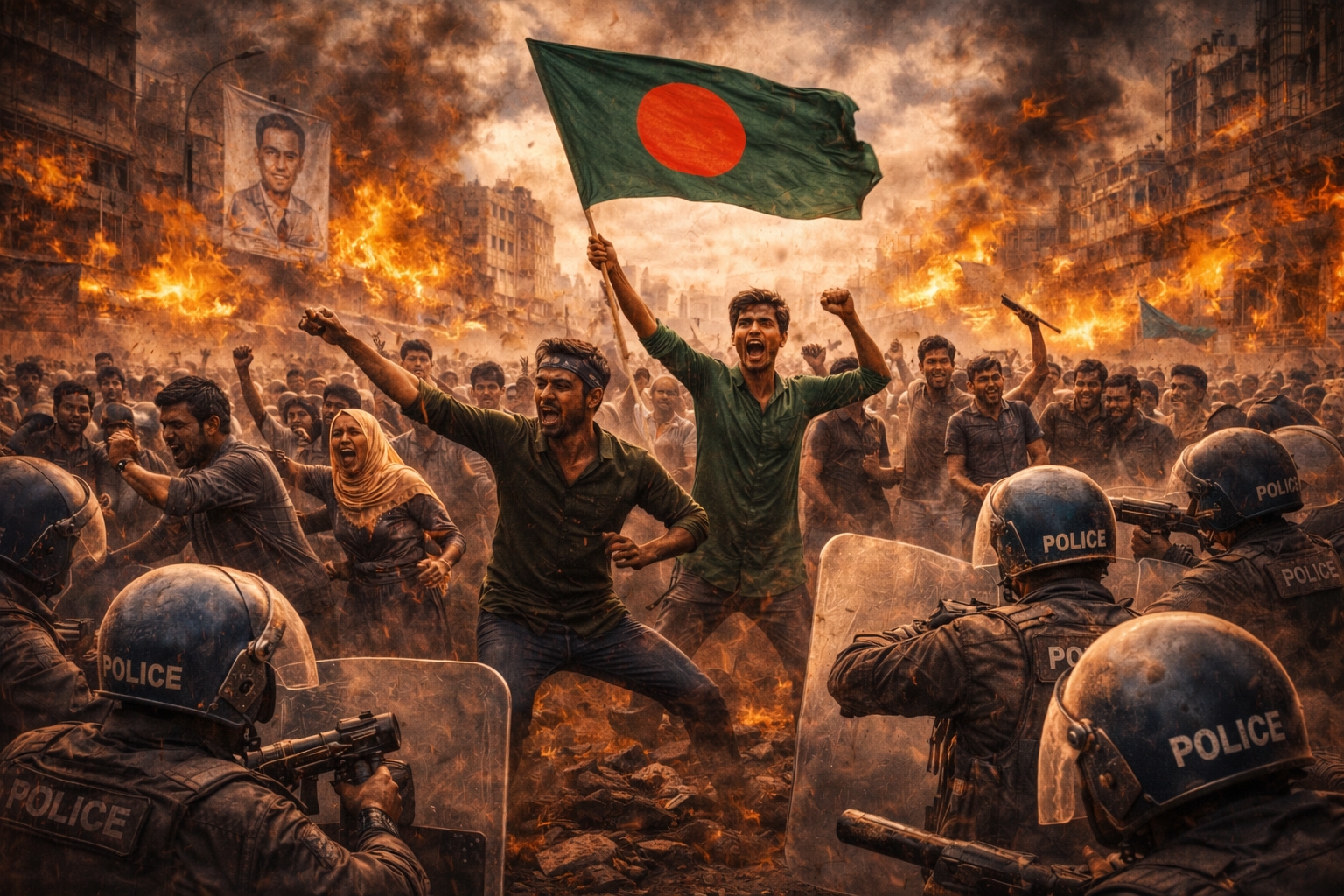



The killing of student leader and rising political player Osman Hadi in Dhaka has plunged Bangladesh into a crisis. This was precisely the purpose of the perpetrators that the majority of people in Bangladesh see as being supported by India and the Awami League.
Bangladeshi students have achieved remarkable success by driving the dragon lady, Sheikh Hasina from power. She fled to India, her real master, but Bangladesh faces an uncertain future unless the students remain vigilant and prevent their movement from being hijacked by vested interests.
Most people in Pakistan would rather not remember the humiliating surrender of 90,000 Pakistani troops to the invading Indian army in December 1971 but those terrible days need to be recalled to discuss how the country ended up in that terrible situation and who was responsible.
While the world is gradually waking up to the horrors visited upon the Rohingya community in Myanmar, some Muslim regimes are deliberately undermining efforts to help them.
Hasina Wajed, the Bangladeshi prime minister, is on a witch- hunt. She is executing political rivals after putting them through kangaroo trials. She is dredging up old hatreds that will cost her dearly as well.
The regime of Hasina Wajed who just “won” a fraudulent election in Bangladesh, appears determined to kill all its opponents either through flawed judicial processes or by making scandalous allegations against opponents. The result is turmoil that may perhaps lead to civil war.
Poverty and violence are two characteristics frequently associated with Bangladesh. Today's election that was boycotted by all the opposition parties was marred by killings and firebombing of polling stations. Turnout was extremely low. While the “incumbent” prime minister Hasina Wajed may claim victory, the extremely low turnout and boycott by international observers have cast serious doubts about its validity.
By executing a top leader of the Jamaat-e Islami, Prime Minister Hasina Wajed may have opened a front in Bangladesh that she may not be able to control. Endless turmoil can be expected in the troubled country.
Hasina Wajed is determined to push Bangladesh into civil war. The hasty manner in which Jamaat-e Islami leader Abdul Qauder Molla was executed by hanging within hours of the Supreme Court rejecting his appeal to review his death sentence shows the vindictiveness of the current prime minister. Violent protests erupted in many cities across the country. Bangladesh is heading for more turmoil as polarization deepens.
There appears no limit to the hatred of Bangaldeshi Prime Minister Hasina Wajed. She insists on seeking revenge from her political opponents that had opposed her father's quest to break Pakistan with Indian military help to create Bangladesh. Her government has announced it will hang Abdul Qauder Molla, a leader of the Jamaat-e Islami after midnight today. Observers believe it will lead to more chaos in the country.
Exile has replaced execution by noose or firing-squad as the preferred method of getting rid of troublesome politicians in Pakistan and Bangladesh.
Elections due to take place in Bangladesh on January 22 were cancelled abruptly on January 11. The country’s caretaker government, headed by president Iajuddin Ahmed, resigned at the same time and a new caretaker government, headed by Dr Fakhruddin Ahmed, governor of the State Bank, was sworn in.w
Dead people, especially if they happen to be political leaders, assume a stature larger than life in many ‘third world’ countries. Politicians in Bangladesh, however, have turned the worship of dead leaders into a religious cult.
Most people would be hard pressed to tell who the ‘Stranded Pakistanis’ or ‘Bihari Muslims’ in Bangladesh are. That neatly sums up their tragedy, which dates back to the turmoil surrounding the painful birth of Bangladesh in December 1971..
Beware Islam in Bangladesh! In the latest Islamophobic scare story, the western media reported that Shaikh Osama Bin Laden has been financing Muslims in Bangladesh.
Foreign non-governmental organisations (NGOs) operating in the Muslim world have become the primary vehicle for spreading western culture and pornography.
From Bangladesh through Central Asia to Iraq, tens of millions of Muslims have been poisoned, many terminally, as a result of pollution from nuclear dust, pesticides and arsenic in water wells - all at the hands of western governments, international aid agencies and Russia, as the dominant power in the former Soviet Union.
Seldom is the political history of a country so closely interwoven with the building a bridge as it is in Bangladesh, a country of 120 million people perched above the stormy Bay of Bengal.
As Bangladesh aid donors met in Dhaka on November 4, they got a glimpse of the problems confronting the country. The opposition Bangladesh Nationalist Party (BNP) held a noisy rally in the capital condemning the regime’s performance.



